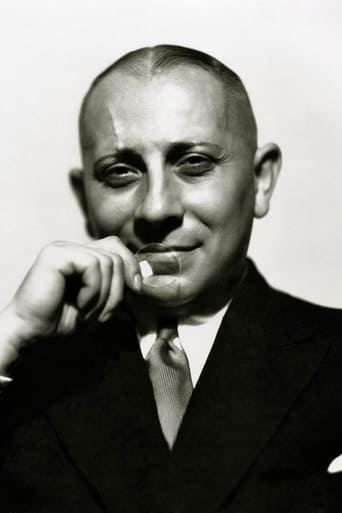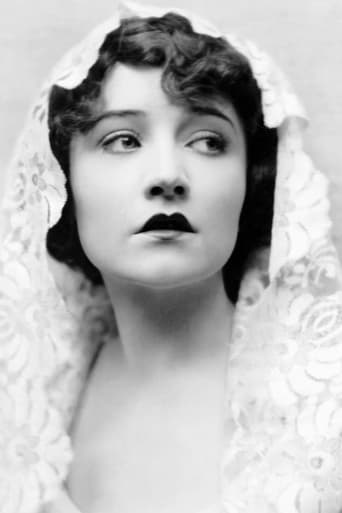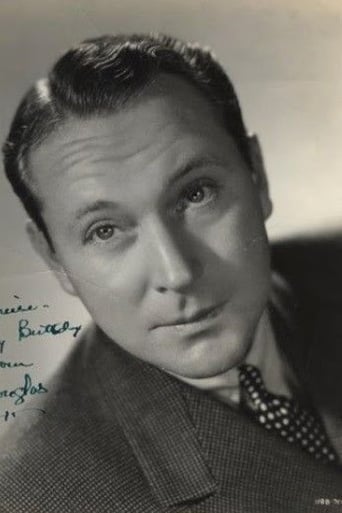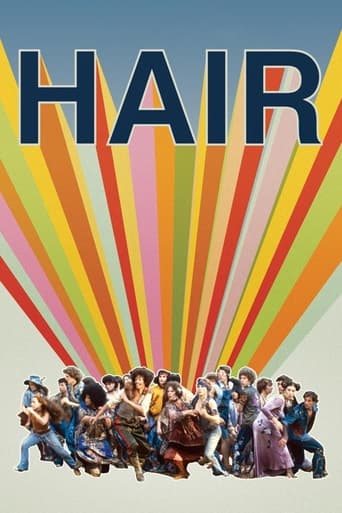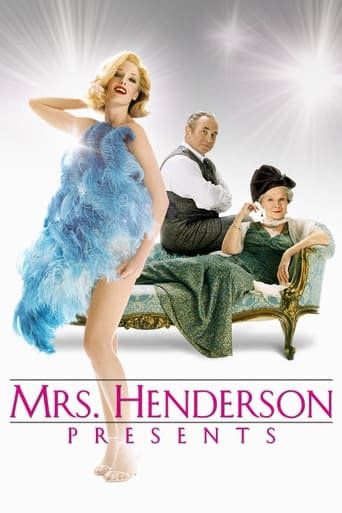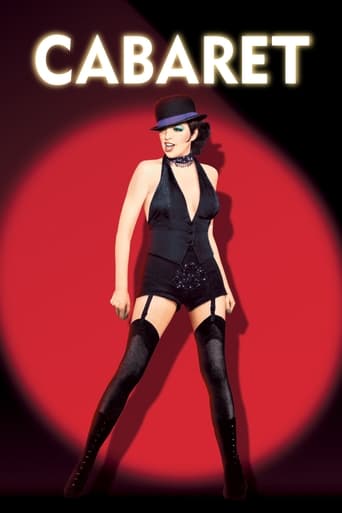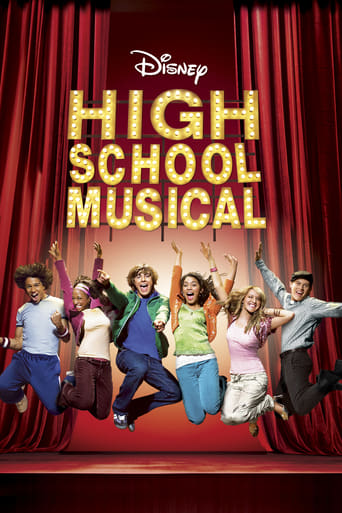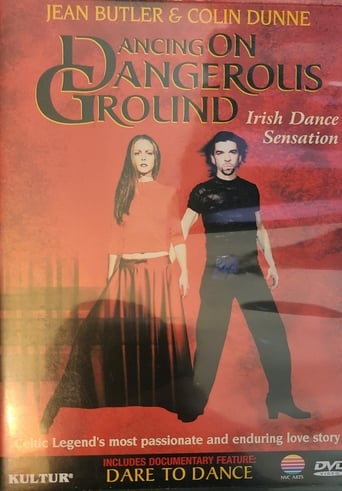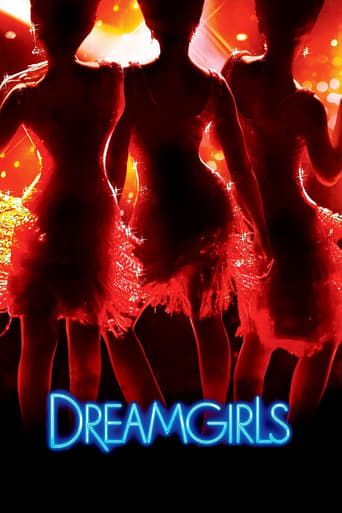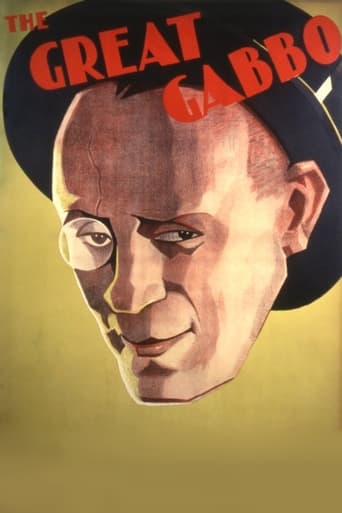
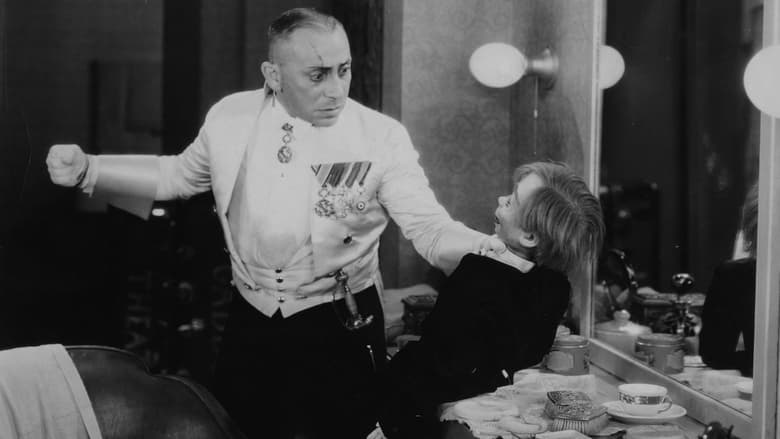
 Watch Now
Watch Now





The Great Gabbo (1929)
 Watch Now
Watch Now





For the ventriloquist Gabbo his wooden dummy Otto is the only means of expression. When he starts relying more and more on Otto, he starts going mad.
Watch Trailer
Cast


Similar titles
Reviews
Sadly Over-hyped
Powerful
It is a performances centric movie
The first must-see film of the year.
This is a strange little number because it's a pretty dark subject matter, which at times is pretty chilling to watch, but then they throw in lots of songs. I'm not too sure what the Directors were going for when they filmed this. I say this because it's evident, at times, that quite a few scenes were added later... and I cannot figure out why.I really like the idea of the mad ventriloquist. In this stories concept, he is in love with his assistant, Mary (Compson), though finds it hard to fully converse with her. As The Great Gabbo (Erich von Stroheim), as he sees himself, he's nasty, offensive, and disagreeable. However, when he speaks through the dummy he can be loving and charming. It's this fissure that eventually leads to his mental breakdown.I know that the musical moments are there because it's set in the vaudeville and theatre life, though for most of the time these feel more like padding - filling out time. I think this could be remade and be an actually powerful movie. Reduce the musical side and expand on the breakdown. There are times in this movie where chills ran down my spine. The part where Mary walks out on The Great Gabbo and the Dummy calls her softly back, to be reprimanded by Gabbo is both heartbreaking and creepy as hell.The film, in general, is entertaining, though I have to say I found the number of musical intermissions too much. These are also 1920's musicals so are not so relevant today. Also, the dancing isn't up to par with bigger productions. Though I have to say the scene where Mary throws herself off a giant spiders web to be caught inches from the ground is breathtaking. I would say, for all creepy doll fans and those who like a psychological edge to their dramas, it's worth a watch.
Now Erich Von Stroheim is regarded as one of the all time great directors but back in 1930 he was almost unemployable. He had been sacked from "Queen Kelly" (1928), at the star's (Gloria Swanson) insistence. He was then hired to star in "The Great Gabbo" and the film showed audiences what a wonderful character actor he was. People could see and hear him yelling, preening and huffing - sounding exactly the way he looked!!!Erich Von Stroheim plays Gabbo, a conceited meglomaniac, who has a ventriloquist act that he performs on the vaudeville circuit. During one performance, his assistant and live-in love Mary (Betty Compson) drops a tray and is forced by Gabbo to find another job. She leaves him with the advice "We only take out of this life what we put into it!!".Otto, the "dummy" seems to have a life of it's own - he is Gabbo's conscience and talks to him about his bad decisions. Before Mary goes, she questions why, with such a good act, he is still playing vaudeville. Gabbo decides to do something about it and 2 years later he is the toast of Broadway in "The Manhattan Revue". When they go out to tea at an exclusive restaurant Otto sings "The Lollipop Song" - "and it gets all over icky" - much to everyone's delight. They see Mary at a table with Frank, her new partner. They are playing at the same theatre.Marjorie "Babe" Kane then sings "Every Now and Then" with Frank and afterwards it gets the full production treatment with dancing girls and men in top hats. Gabbo hasn't changed his autocratic manner - his new dresser is ready to walk out but Mary intervenes. Mary feels sorry for Gabbo and tries to do a few things for him - gets his coffee etc. Frank gets the wrong idea as does Gabbo, who thinks Mary is coming back to him. Otto then sings "I'm Laughing" during the show. This song and "The Lollipop Song" have a very European sound. "The Ga-Ga Bird" is missing - at this point you see chorus girls removing bird costumes. Also at the end there is a montage of all the songs in the show and there is a scene of girls dancing in bird costumes - you also hear a bit of the music as well. Next there is a big production number "I'm In Love With You". I think the last couple of reels were filmed in "Multicolor" - just the look of the stage and dancers. The next number is "The New Step" featuring "Babe" Kane and dancing chorus girls in a whizz bang production with psychedelic curtains and a revolving bulls- eye. The songs just keep on coming."When You're Caught in a Web of Love" is astounding. An amazing acrobatic dance (it is so obvious that it is not Betty Compson dancing). There is also a conversation being carried on, stopping only when she is being thrown around, and then resumed when she is still. The dance starts off on a big spider's web and the dancers then jump down. It would have been glorious in color. All the chorus girls dressed as butterflies and dancing, not always in time but that is part of the charm.When Mary tells Gabbo the truth - that she and Frank are married and if she misses anyone it would be Otto, who always had a kind word for her - Gabbo is completely derailed mentally. He has a complete break down and ruins the finale and the ending shows him walking forlornly away with Otto as his name is being taken off the theatre marquee.I think the problem with the musical numbers during the last part was that they didn't seem to be incorporated into the plot. Even if there had been some clichéd dialogue "This is our big chance", "I hope we make it" - it would have made the last 20 minutes less awkward.Recommended.
Erich von Stroheim plays Gabbo the ventriloquist, who tyrannizes his beautiful assistant Marie (Betty Compson) until she leaves him. Of course she becomes something of a star, but Gabbo succeeds even more, and is the headliner of a musical review in which she and her Stick Figure fellow (Donald Douglas) sing. There are long stage routines with fairly lousy music but exceedingly good dancing, wonderfully costumed and synchronizedthere's one effect when the female and then the male dancers are at first invisible on stage because they are wearing black capes and when they whirl around the white costumes show and then blink out again. One singer/dancer, Babe (Marjorie Kane) is also very fetching, with her Betty-Boop voice and her funny face and her athletic dancing. Compson is appealing, especially when she's talking to Otto, Gabbo's dummy and companion. Von Stroheim is steely and convincing as an egotistical bully whose sweet side is only allowed to surface in what Otto says. When Gabbo is reunited with Marie, he expects her to return, and she shows signs of being fond of him, and of Otto, but she's already married to Stick Figure, and Gabbo, whose sanity has already been suspect because he talks all the time with Otto, really goes mad. We get the whole works, temper tantrums, hallucinations via montage, interruption of the finale, and in the end a defeated Gabbo, fired from the review, walks into the night, shoulders sagging, as the crew removes his name from the marquee. It's better than this synopsis makes it sound.
The Great Gabbo was made as a musical and altho some of the musical numbers and songs are not as good as those in other films of its time, they are interesting and enjoyable to see and hear, at least for some of us lovers of the popular music of the 1920s (and 30s).


